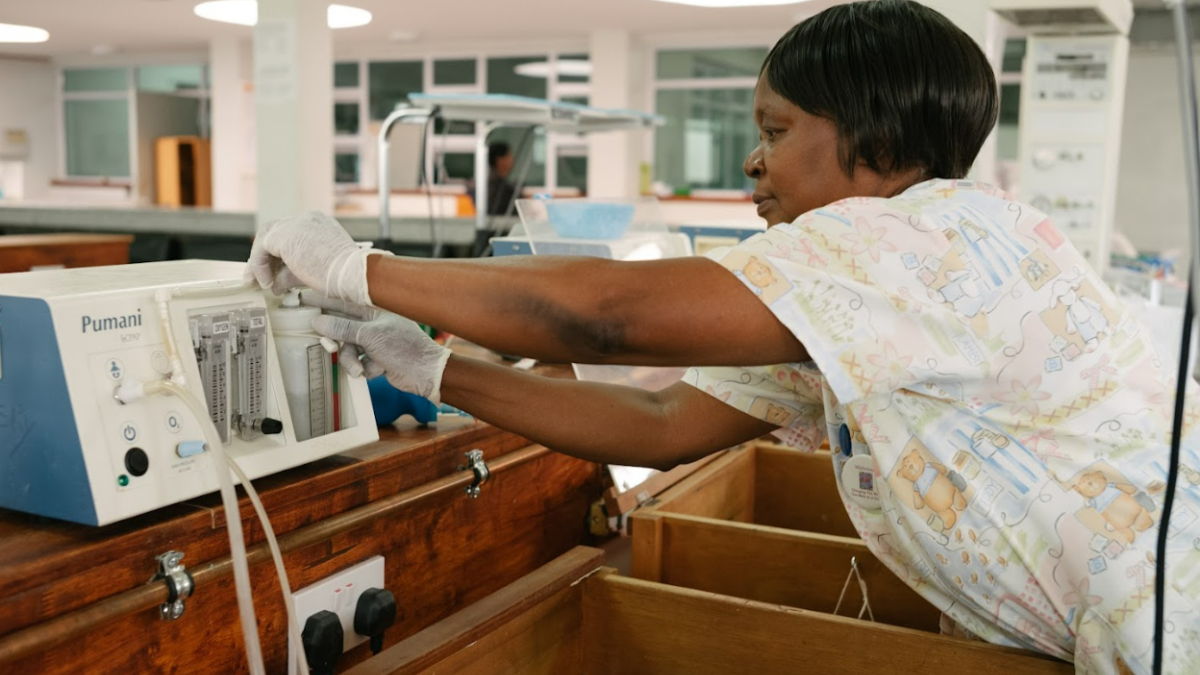
Over the last few years, life expectancy has declined globally, with the pandemic causing untold damage to health systems and populations, especially for the poorest and for women and children. The United States is committed to restoring essential health services to pre-pandemic levels by the end of 2025, by strengthening health systems and investing in health workers, as an essential step toward achieving universal health coverage and renewing progress on the SDGs.
Dave Cooper for USAID
Ensure healthy lives and promote well-being for all at all ages
By delivering higher concentrations of oxygen, the continuous positive airway pressure machine, or CPAP, can save the lives of babies who don’t respond to normal oxygen therapy treatment. Before using the CPAP, Florence (pictured above) and her team at a hospital in Malawi were losing many premature babies with breathing difficulties.
The key to expanding the use of CPAP was to make it affordable and durable. Jocelyn Brown, a bioengineering student at Rice University, invented the Pumani bCPAP. “Pumani” means “breath” in the Malawian language of Chichewa. Using low-cost supplies and a shoe box, Jocelyn and her team created a prototype that costs one-tenth of the price of a traditional CPAP.
After an initial seed investment from Saving Lives at Birth to prove that the intervention works, USAID and Saving Lives at Birth supported the Government of Malawi to scale-up the intervention across the country.
